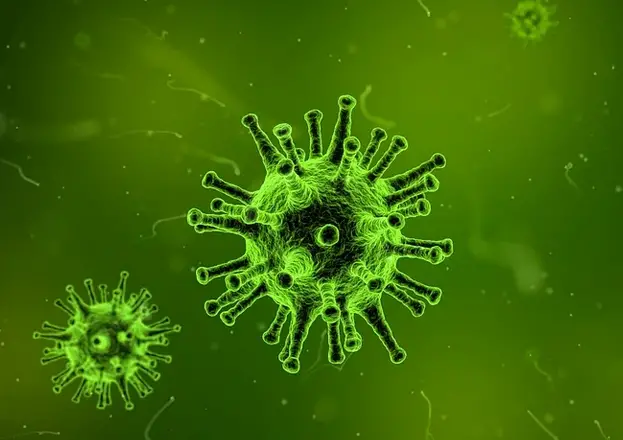The “HeLa” cell line is a rather notorious area of science that is steeped in infamy. Raising many ethical questions, the HeLa cell line was key in the creation of some life-saving vaccines.
But while many will praise this overall situation, it isn’t possible to look past the tragic backstory behind the creation of the cell line.
It involves how one woman – Henrietta Lacks – did not provide consent to effectively be used for research, only to soon die and have her memory disrespected.
The Origin of the HeLa Cell Line
In 1951, Henrietta Lacks – a 31 year-old African-American, who had five children – was admitted to a hospital in the State of Maryland, United States.
She was treated for cervical cancer. During this treatment, tissue samples from her cervix were collected – without Lacks being aware. Nor did Lacks ever consent to this.
These samples led to excitement for scientists, as unlike many other samples taken, they found that the cells within these samples were able to grow rapidly – which had never been seen before.
The cells were harvested, and soon after Lacks died – without ever being aware of any of this happening. Little did she know that she would become a part of history – but crucially, without her consent.
We should mention that there was no legal requirement at the time to seek consent. However, it is highly unethical, and
The cell line was called “HeLa” – in line with the first two letters of Henrietta Lacks’ first and second name. This was standard procedure at the time.
Use in Research
HeLa cells are considered to be what the medical industry terms “immortal”. This is because they are capable of dividing an unlimited number of times in laboratories, so long as researchers use certain conditions to grow them in.
Whilst sub-types of the cells have mutated over time, they all trace back to the exact tumour cells that were removed from Lacks. It is almost impossible to know just how many times the cells have been replicated.
The cells have been used extensively in research, and still continue to be used in the field of science. They will surely be used for many years to come.
The cells have been used to assist in efforts against conditions like Polio, Cancer and some viruses. It has been considered to be a huge breakthrough in science.
In fact, more than 60,000 scientific articles have been published regarding research into the HeLa cell line. It has simply had a colossal impact.
Controversy and Family Anger
Any unsolicited use of human cells, or any abuse of the human body, is deeply troubling. The research resulted in many ethical questions being raised. It has become a controversial subject.
Lacks’ family – unaware of any of this – were asked to provide DNA samples to a research group, who wanted to learn more about the family. They were left rather confused.
Lacks should’ve at the very least had anonymity. However, in the 1970s, her name and identity were leaked, resulting in her name becoming public knowledge.
At the time of Lacks’ treatment, black Americans were still treated poorly. The hospital in which she received her care was the only hospital in the area which would treat African-American patients for free.
But this came at a cost. These patients were segregated, and would often be used for research purposes without them knowing. Effectively, they were being treated like second-class citizens.
Again, this raises several controversial topics. Not only were Lacks’ cells used without her consent, but there was very little care given to her.
Legacy
The case became part of a growing controversy in the United States regarding a lack of consent. The Supreme Court of California would rule in a landmark case that decided that any discarded tissue or cells of a person that receives medical care could be commercialized.
But in 1981, a major step in medical ethics took place – with the creation of the Common Rule. This led to the requirement for patients to be informed if any details of the patient would be used in research.
There was also increased regulations on tissues being connected to the names of donors. Patient privacy was finally taken seriously.
In the modern age, Henrietta Lacks has become more appreciated. Lacks is regularly honoured, with her awarded a posthumous doctorate from Morgan State University. Moreover, she was inducted into the Maryland Women’s Hall of Fame. A permanent memorial for Lacks stands in Clover, Virginia, and a park named in her honour exists in Baltimore, Maryland.
Lack of family compensation
One of the most unethical aspects of this case is how Lacks’ family were not compensated in any way. This is despite the fact that some drug companies have literally earned billions due to these cells.
Lacks’ family had no say in who would receive the cells, nor what they would be used for. Their ethics were completely ignored by financially-motivated, greedy scientists.
In 2021, the estate of Henrietta Lacks sued a range of pharmaceutical companies that were able to profit from HeLa cells. The case is ongoing. We can only hope that the family receives something to honour the memory of Henrietta.
The Takeaway
Lacks sadly passed away in 1951, and died without knowing the impact she would have. While her family can take solace in the fact that several lives have presumably been saved, it is still an egregious act of selfishness, a lack of care, and an invasion of privacy.
Hopefully the family of Lacks will receive some compensation. Lacks will be remembered, but she deserved far, far better.













































